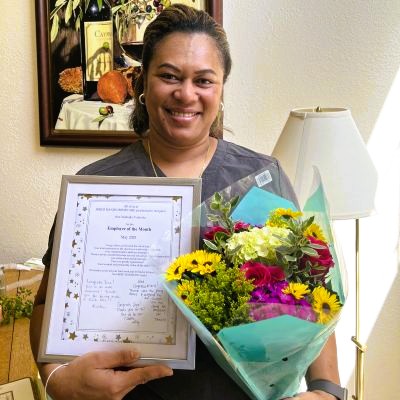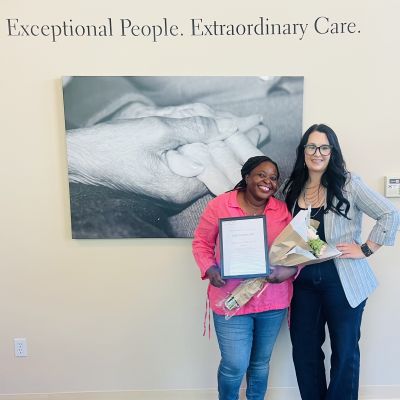The guidance on approaching sensitive conversations about substance misuse is very helpful. It’s critical to approach these discussions with empathy and patience, as older adults may be resistant to acknowledging substance use issues. In places like Hosur, home medical services, including in-home nursing care, can offer added support by keeping a trained eye on their health and wellness while providing companionship and medical assistance right at home.
Feeling Bored as a Caregiver? Try These Ideas!


Identifying the signs of substance misuse in older adults is the first step towards getting them help.
It’s not unusual for Dad to enjoy a glass or two of wine with dinner, but lately, you’ve noticed that he’s gravitating towards stronger drinks more frequently, and earlier in the day. He might say it helps with sleep or eases the aches of arthritis, but is there more to be concerned about?
Substance misuse among older adults is more prevalent than many realize and poses significant dangers if it goes unaddressed. The signs of substance misuse in older adults are often overlooked or mistaken for normal aging-related changes. Whether it’s alcohol, prescription medications, or over-the-counter drugs, misuse can have serious implications. Recognizing the risks and identifying the warning signs are critical steps in addressing this issue.
Signs of Substance Misuse in Older Adults
If you’re worried about your parent, keep an eye out for these potential warning signs of substance misuse:
- Noticeable changes in sleep habits
- Increased withdrawal from social activities
- Unexplained bruises, injuries, or frequent falls
- Sudden mood changes, irritability, or agitation
- Neglect of personal grooming or hygiene
- Memory lapses or confusion
What to Do if You Suspect Substance Misuse in an Older Loved One
Start by educating yourself about the specific risks and effects of substance misuse in older adults. Once you’re knowledgeable, it’s time to have a heartfelt conversation. Approach the topic with empathy, as the person may feel embarrassed or defensive about their behavior. Expressing genuine concern rather than judgment is crucial.
Tips for an Empathetic Conversation:
- Pick a quiet, private place for your discussion.
- Use “I” statements to share your observations, such as, “I’ve noticed you seem more tired lately, and it’s making me concerned.”
- Listen carefully, showing respect for their feelings and viewpoint.
- Avoid accusatory language or jumping to conclusions.
Key Discussion Points:
- How alcohol or drug use may interact with their prescribed medications.
- The increased sensitivity to substances as they age.
- The potential long-term health effects of continued substance use.
Fostering Open Communication
Encouraging your parent to talk openly about their substance use can be challenging but essential. Assure them that it’s okay to share their struggles and that you are there to offer support.
Strategies to Promote Open Dialogue:
- Pose open-ended questions, like “How have you been feeling recently?” or “Can you walk me through your day?”
- Be patient, giving them time to respond thoughtfully.
- Reassure them that asking for help is a sign of courage, not a weakness.
Providing Support and Solutions
Once the issue is acknowledged, explore solutions together. This could mean seeking professional help, like counseling or joining a support group, or simply making adjustments to their daily routine.
Ways to Offer Support:
- Assist them in finding a healthcare professional who understands substance misuse in older adults.
- Recommend joining a support group where they can connect with others facing similar challenges.
- Offer to accompany them to appointments or meetings for added support.
Regular Follow-Up
Addressing substance misuse is an ongoing process. Keep in touch with your parent, regularly checking on their progress and offering continued support. Celebrate their achievements and provide encouragement during difficult times.
Follow-Up Tips:
- Set up regular check-ins, whether in person or by phone.
- Keep an eye on any changes in their behavior or health.
- Continue providing emotional support and practical assistance as needed.
How Hired Hands Homecare Can Help
We’re here to support you and your loved one through every step of this journey. Contact us at (866) 940-4343 to learn more about our in-home senior care services in Novato, Santa Rosa, Napa, and throughout the Bay Area.








The guidance on approaching sensitive conversations about substance misuse is very helpful. It’s critical to approach these discussions with empathy and patience, as older adults may be resistant to acknowledging substance use issues. In places like Hosur, home medical services, including in-home nursing care, can offer added support by keeping a trained eye on their health and wellness while providing companionship and medical assistance right at home.